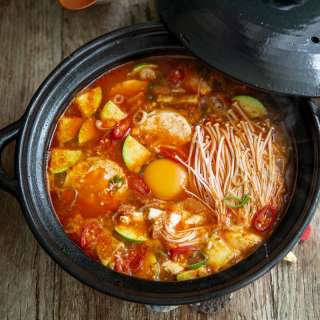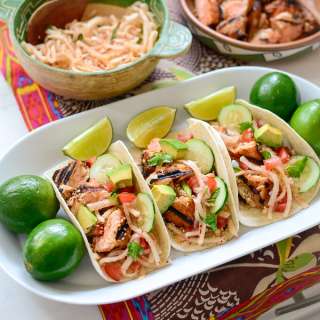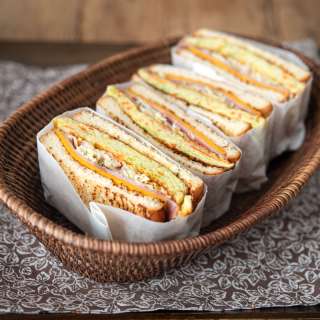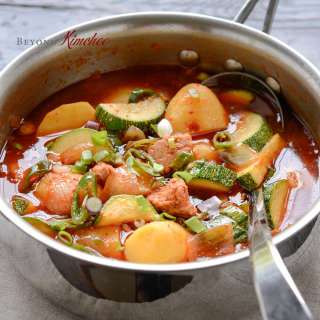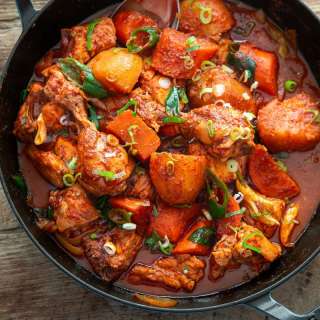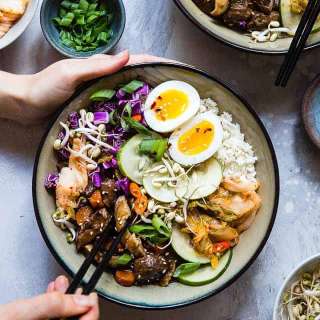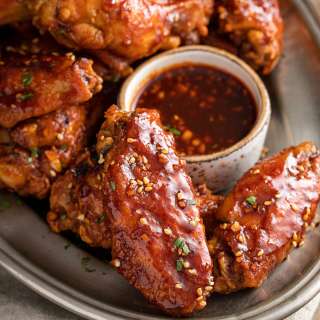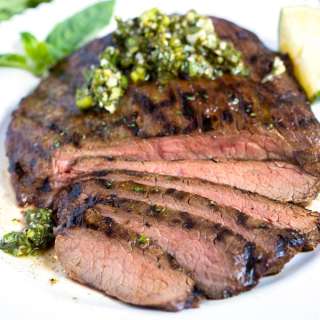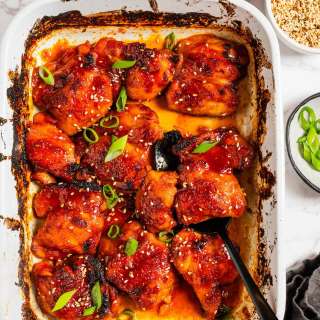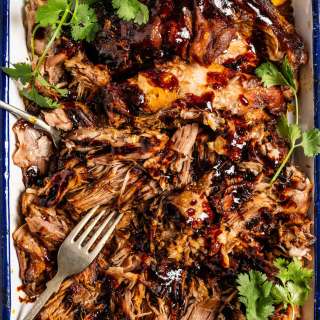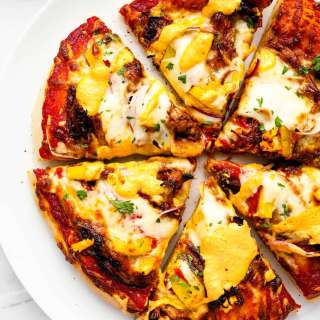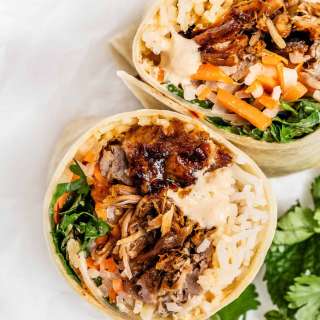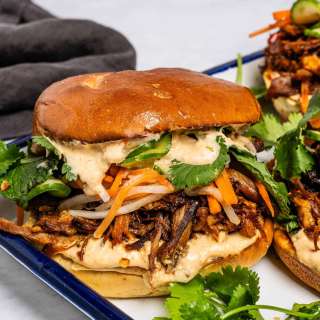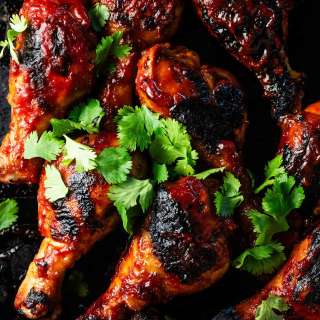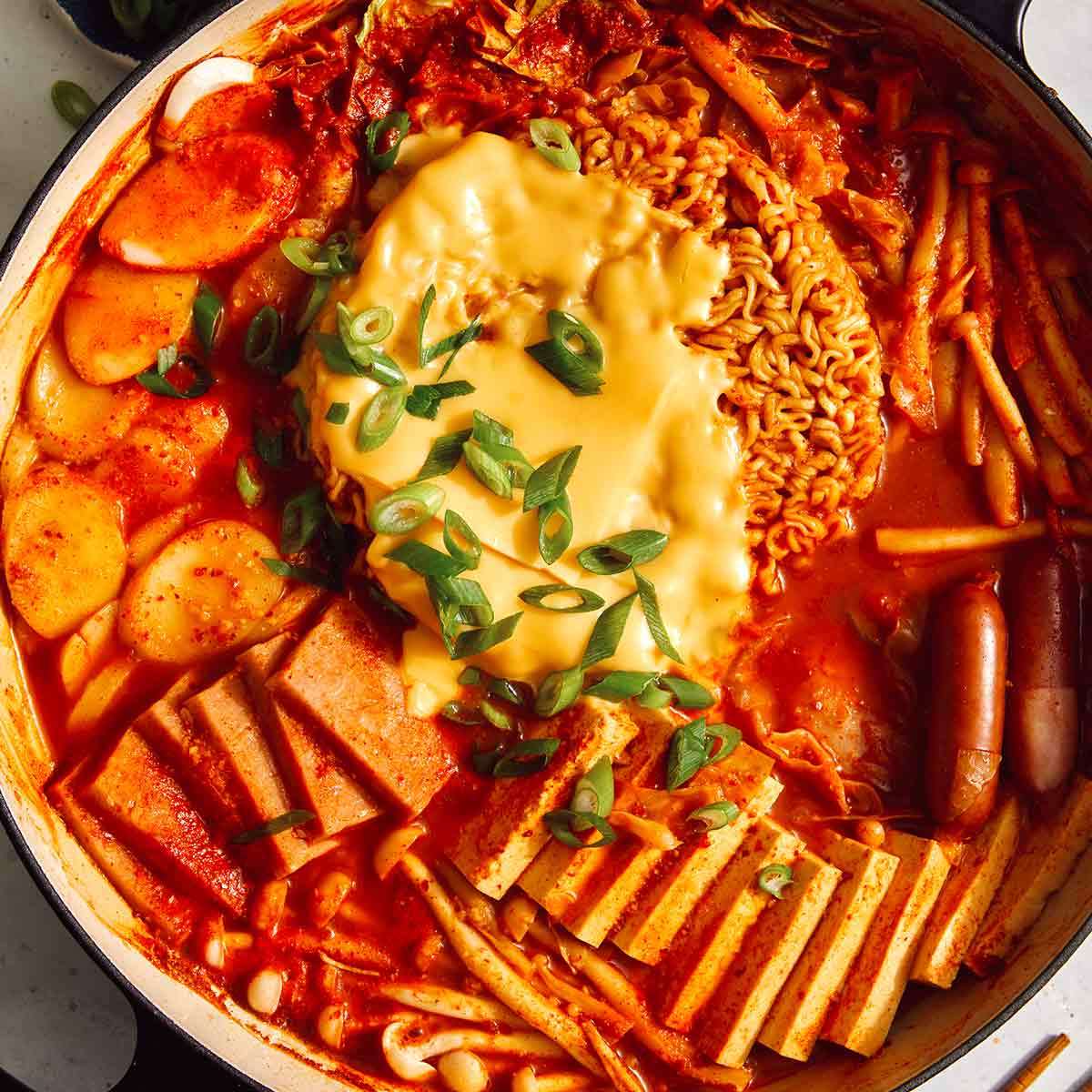
Budae Jjigae (Korean Army Stew)
User Reviews
5.0
12 reviews
Excellent

Budae Jjigae (Korean Army Stew)
Report
A delicious Korean stew originally created post Korean war due to necessity and limited resources, Budae Jjigae is enjoyed today by many as an inexpensive kitchen sink type Korean stew with deep, rich flavors.
Share:
Ingredients
sauce paste
- 2 1/2 tablespoons Gochujang (Korean hot pepper paste )
- 2 tablespoons water
- 1 1/2 tablespoons Gochugaru (Korean hot pepper flakes)
- 2 tablespoons minced garlic
- 1 tablespoon soy sauce
- 1 1/2 teaspoons sugar
stew
- 7 ounces drained firm tofu cut into thin squares
- 6 ounces (1/2 can) Spam cut into thin squares
- 6 mini sausages such as lil smokies
- 1 cup chopped green cabbage
- 1/2 pound tteok (oval shaped rice cakes)
- 5 ounces enoki or snow white mushrooms, trimmed
- 5 cups water
- 1 pack instant ramen noodles (without flavor packet)
- 2 lices American cheese
- 2 green onions thinly sliced on a bias
Instructions
- Place all paste ingredients into a small bowl.
- Whisk together. Set aside.
- In a large, shallow pot arrange sausages, spam, tofu, cabbage, rice cakes, and mushrooms.
- Top with paste mixture.
- Pour water in pot and bring to a boil. Gently stir to evenly distribute the paste.
- Once mixture is brought to a boil, add noodles, and continue to cook until everything has cooked through, and noodles are soft.
- Top stew with American cheese and green onions and boil for another minute. Remove from heat and serve.
Notes
- Tips and Tricks for Success
- The spicy paste sets the foundation for the overall stew, so you don't want to skimp on the ingredients. It's especially important to use gochujang for the authentic (slightly) sweet and spicy umami flavor it provides. (If you're interested to learn more about gochujang and my preferred brands you can find more information in our Gochujang Noodles recipe post.)
- Keep things cheap and simple, like the dish was originally intended to be. It will truly give you the best flavor and experience!
- Eat it immediately after making it to ensure the noodles and rice cakes don't bloat and become soggy.
Nutrition Information
Show Details
Calories
267kcal
(13%)
Carbohydrates
39g
(13%)
Protein
14g
(28%)
Fat
16g
(25%)
Saturated Fat
6g
(30%)
Polyunsaturated Fat
2g
Monounsaturated Fat
7g
Trans Fat
0.1g
Cholesterol
33mg
(11%)
Sodium
1159mg
(48%)
Potassium
363mg
(10%)
Fiber
2g
(8%)
Sugar
3g
(6%)
Vitamin A
726IU
(15%)
Vitamin C
7mg
(8%)
Calcium
147mg
(15%)
Iron
2mg
(11%)
Nutrition Facts
Serving: 6Serving
Amount Per Serving
Calories 267 kcal
% Daily Value*
| Calories | 267kcal | 13% |
| Carbohydrates | 39g | 13% |
| Protein | 14g | 28% |
| Fat | 16g | 25% |
| Saturated Fat | 6g | 30% |
| Polyunsaturated Fat | 2g | 12% |
| Monounsaturated Fat | 7g | 35% |
| Trans Fat | 0.1g | 5% |
| Cholesterol | 33mg | 11% |
| Sodium | 1159mg | 48% |
| Potassium | 363mg | 8% |
| Fiber | 2g | 8% |
| Sugar | 3g | 6% |
| Vitamin A | 726IU | 15% |
| Vitamin C | 7mg | 8% |
| Calcium | 147mg | 15% |
| Iron | 2mg | 11% |
* Percent Daily Values are based on a 2,000 calorie diet.
Genuine Reviews
User Reviews
Overall Rating
5.0
12 reviews
Excellent
Other Recipes
